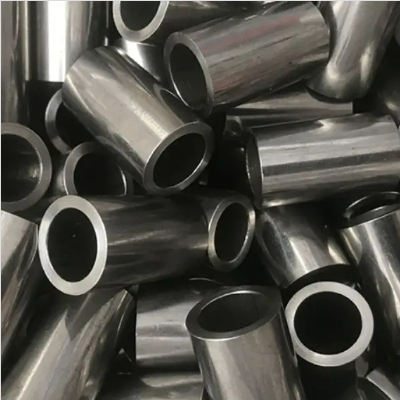Mobile:+86-311-808-126-83
Email:info@ydcastings.com
Impeller Selection Guide for Electric Motor Applications and Performance Optimization
Understanding Impellers for Motors Key Components in Fluid Dynamics
In the realm of mechanical engineering and fluid dynamics, the impeller serves as a critical component for a variety of applications, particularly in motors. Whether in pumps, engines, or turbines, the impeller's design and functionality determine the efficiency and effectiveness of the machine it supports. This article explores the importance of impellers, their types, applications, and considerations for optimal performance.
What is an Impeller?
An impeller is a rotating component of a machine that transmits energy to the fluid by converting rotational energy from a motor into kinetic energy. This energy transfer enables the movement of the fluid within a confined space, facilitating the processes of pumping, mixing, and aerating, among others. Impellers can vary in shape, size, and material depending on their application and the type of fluid they interact with.
Types of Impellers
Impellers are categorized into various types based on their design and function. The most common types include
1. Open Impellers These feature blades that are not enclosed by a shroud. Open impellers are used in applications requiring high flow rates and are ideal for handling liquids containing solids or particles.
2. Closed Impellers These impellers have blades enclosed by a shroud on both sides. They are typically more efficient than open impellers, making them suitable for applications requiring high pressure and low viscosity fluids.
3. Semi-Closed Impellers Combining features of both open and closed designs, semi-closed impellers strike a balance between efficiency and robustness. They are particularly useful in applications where the fluid contains some degree of particulates.
4. Radial Impellers These impellers push the fluid perpendicular to the impeller's shaft. They are commonly used in pumps and are excellent for generating high pressure.
5. Axial Impellers Unlike radial designs, axial impellers move fluid parallel to the shaft. They are often used in applications demanding large volumes of fluid movement but at lower pressures, such as in ventilation systems.
Applications of Impellers
impeller for motor

Impellers find their place in an array of industries, including
- Water and Wastewater Treatment In pumps used for sewage or industrial wastewater, impellers help move large volumes of water while managing solid waste.
- Chemical Processing Impellers are integral in reactors and mixers, ensuring the thorough mixing of chemicals and raw materials.
- HVAC Systems Fans equipped with axial impellers are widely used in heating, ventilation, and air conditioning systems, promoting air circulation and cooling.
- Marine and Aerospace Impellers are critical in jet engines and marine propellers, where fluid dynamics play an essential role in propulsion and maneuverability.
Factors Affecting Impeller Performance
Several factors influence the performance of an impeller, including
1. Material Selection The choice of material affects durability and resistance to corrosion and wear, which is especially crucial in harsh environments or when dealing with abrasive materials.
2. Design Parameters The shape, size, and number of blades determine the flow rate and efficiency. Manufacturers must carefully balance these factors to achieve optimal performance for specific applications.
3. Operational Conditions Factors such as fluid viscosity, temperature, and pressure impact how an impeller performs. Understanding these conditions allows for the engineering of impellers tailored to the processes they will undergo.
Conclusion
In summary, impellers are vital components in powering fluid movement across various applications. Understanding the types, applications, and performance factors associated with impellers enables engineers and operators to select the most suitable designs for their needs. From enhancing efficiency in water treatment plants to optimizing jet engine performance, the right impeller can significantly impact operational success. By focusing on advancements in impeller technology and design, industries can continue to innovate and improve their fluid dynamics systems, ensuring reliability and effectiveness in service.
-
Impeller Technology That Powers Precision in Pump SystemsNewsMay.22,2025
-
Valve Durability Begins with Quality Cast Iron ComponentsNewsMay.22,2025
-
Performance Cooling with Advanced Automobile Water Pump SolutionsNewsMay.22,2025
-
How Motor Housing and Oil Pans Shape Engine PerformanceNewsMay.22,2025
-
How Metal Castings Drive Modern Manufacturing EfficiencyNewsMay.22,2025
-
Exploring the Engineering Behind Valve Body CastingsNewsMay.22,2025











